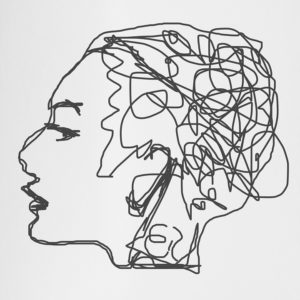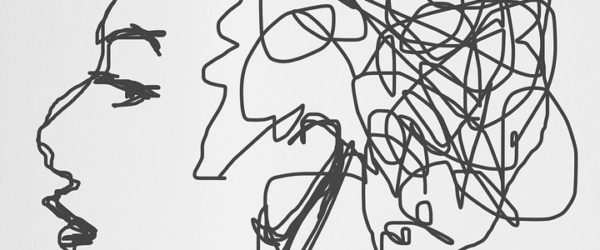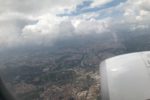Over the past half year or so, I’ve been working on my mental health. While I wouldn’t consider my experiments a success just yet, I’ve figured out a few habits that help me maintain a reasonable quality of life. In the week leading up to Ramadan, a disruption to my schedule left me feeling like I’d been run over by a truck. Though I managed to regain my equilibrium the day before the moon sighting, I worried about my ability to fast. My mental health is fickle at best, and I’ve noticed that even slight dehydration can leave me feeling drained for several days, even after I’ve figured out the problem and rehydrated. I’m terrified fasting will take me to a dark place, and that fear nearly kept me from fasting.
I know that those who are unable to fast are excused from doing so, but I still felt guilty for questioning my ability to fast. The emotional side of my mind wasn’t sure I was “sick enough.” The emotional side was also angry with myself for prioritizing physical well-being over my spiritual well-being, when spiritual well-being is what matters, for me, in the long run. The emotional side wondered if my doubt meant that I wasn’t putting enough faith in Allah (swt), who helps us make it through Ramadan.

Image via Max Pixel.
The logical side of my mind struggled hard to put out the little fires my emotional side lit. After speaking with friends and turning these questions over in my mind, I decided to give fasting a try. I know that being rendered unable to complete even the most basic daily tasks certainly qualifies as “sick enough.” Spiritual well-being may be what gets us into jannah (insha’Allah), but maintaining the house that shelters out spirit is also a necessary part of the process. In my view, our religion discourages extremes, and ignoring the needs of my body (beyond what is commanded for Ramadan) seems extreme to me. Each person’s challenges are different, and not being able to fast simply means Allah (swt) has another plan for me. Logic won this battle, but I have no doubt emotion will rear its ugly head again.
I ultimately decided to fast because I want to know for certain what my body can handle. As of this writing on the third day* of Ramadan I’ve managed to both keep the fasts and my exercise regimen without much of a change to my mental and physical health. I’m taking extra care to make sure I get enough fluids throughout the night, and I aim to have at least three meals in a 48-hour period. I have a tendency to skip suhoor (much in the same way I tend to skip breakfast), so the promise to myself ensures I’m at least getting close to my daily calorie requirement. I’ll be skipping weekend workouts during Ramadan so as not to tax my body too much. I know from experience that going longer than a couple days without intense exercise doesn’t work for me.
Despite writing this piece as if I’ve firmly decided to fast, the nagging worry keeps me on edge. I’m trying my best to believe I’ll be alright while remaining vigilant for signs of decline. The uncertainty occupies more than its fair share of my thoughts, and part of me believes I’m doing a disservice to myself by focusing so much energy on the deprivation aspect of Ramadan when there are so many other ways to engage in acts of worship this month.
Fasting has always been one of my favorite acts of worship; I’m reluctant to give it up.
I’ve made this choice, but I don’t recommend it to everyone. If anyone reading this finds themselves in a similar situation (i.e. where the habits/medications that help keep them functioning are stripped away), I strongly encourage you to listen to your body and seek advice from a medical professional, if you have one available. My decision to fast may turn out to be an unwise one, but at least I’ll know my limits.
*Fifth day update: my stomach is upset and I have a headache, but I think that may be more from what I ate recently than the fasting. I will re-evaluate my situation if the discomfort continues or worsens.


